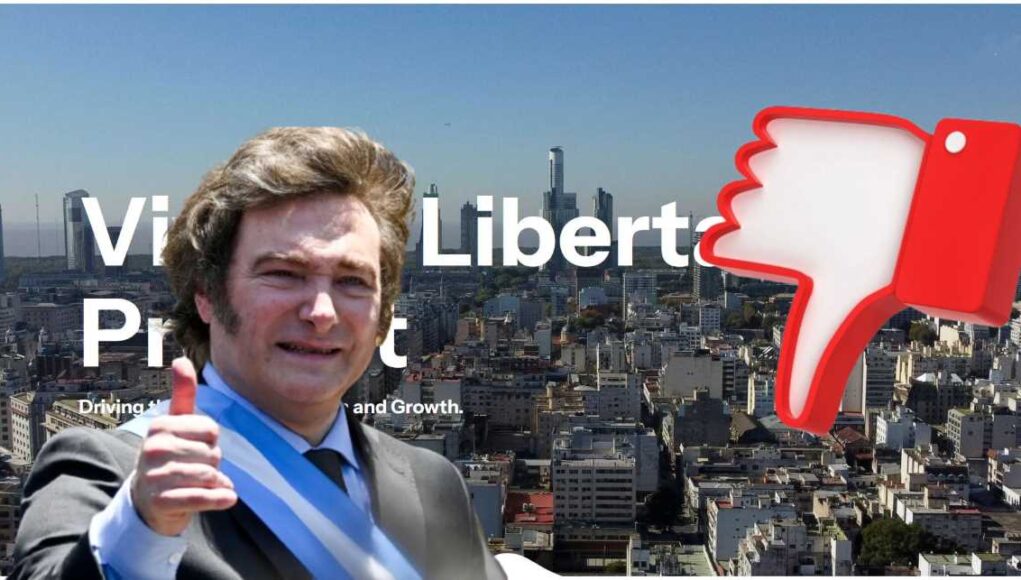Argentina’s President Javier Milei faces intense scrutiny after he endorsed the $LIBRA cryptocurrency. The token skyrocketed in value before crashing into what analysts suspect was a “rug pull.” The collapse wiped out over $4.4 billion from the market. It triggered political backlash, investor outrage, and even calls for impeachment from opposition leaders.
The scandal has raised serious concerns about the role of political figures in the cryptocurrency space, the lack of regulatory oversight, and the broader implications for Argentina’s fragile economy.
The Rise and Fall of $LIBRA: A Suspected Crypto Scam
On February 14, 2025, Milei publicly promoted $LIBRA in a post on X (formerly Twitter), describing it as a private-sector initiative to boost Argentina’s economy. The endorsement led to a meteoric rise in the token’s value, with its market capitalization briefly exceeding $4.56 billion.
However, just hours later, $LIBRA’s value plummeted by over 94%. The collapse erased billions from the market, leaving thousands of investors with massive losses. Blockchain analysis revealed that at least eight wallets connected to the project withdrew $107 million in liquidity, fueling insider trading and fraud allegations.
Cryptocurrency experts believe this pattern suggests a classic “rug pull”. That’s a fraudulent scheme in which developers hype up a token, artificially inflating its value. Then they sell off their holdings, abandoning investors with worthless assets.
Political Fallout: Opposition Calls for Impeachment
The incident has ignited a political crisis in Argentina. Opposition lawmaker Leandro Santoro has openly called for President Milei’s impeachment. He accused him of irresponsibly promoting $LIBRA as an unverified financial scheme that defrauded investors and damaged Argentina’s global reputation.
“This is an international embarrassment,” Santoro stated in a press conference. “A head of state should not be endorsing speculative, unregulated assets that expose citizens to financial ruin.”
In response, Milei has distanced himself from the scandal. He deleted his original social media post and claimed he did not know the project’s specifics. His administration insists that $LIBRA was not a government-backed initiative. Milei himself has accused political adversaries of exploiting the situation for their gain.
Despite these defenses, the damage to Milei’s credibility is significant. The controversy has raised broader concerns about how his administration approaches economic policy and digital asset regulation.
Regulatory Failures and the Risks of Political Crypto Endorsements
The $LIBRA fiasco highlights a major gap in regulatory oversight within the cryptocurrency industry, particularly in emerging markets like Argentina.
Absent a clear legal framework governing digital assets, projects can launch and collapse with little accountability, leaving retail investors vulnerable to manipulation and fraud. The lack of due diligence before Milei’s endorsement further underscores the risks of political figures promoting speculative digital assets without understanding the underlying risks.
Crypto analysts warn that this scandal could erode public trust in digital assets, particularly meme coins and politically affiliated tokens.
“When a sitting president promotes a cryptocurrency without transparency, it fuels speculation and instability,” said a blockchain expert from BeInCrypto. “This is a lesson in why we need regulation to protect investors from politically driven pump-and-dump schemes.”
The Road Ahead: Argentina’s Economic and Financial Reputation at Stake
As the political firestorm intensifies, Argentina’s economic credibility is now under the microscope. Investors, both domestic and international, are watching how the Milei administration handles the crisis.
The country is already battling high inflation and economic instability. Such a blunder could further deter foreign investment and weaken Argentina’s standing in global financial markets.
Some crypto enthusiasts argue that Milei’s pro-crypto stance is a positive step toward financial innovation. However, this incident has reinforced the dangers of speculative digital assets and the need for greater oversight.
>>> Read more: Argentina Sets New Course with Crypto Registry Initiative
The coming weeks will be crucial as investigations unfold, political tensions escalate, and regulatory discussions gain traction. Whether or not Milei faces impeachment, the $LIBRA scandal will have lasting repercussions on Argentina’s political and economic landscape. It could serve as a warning for other leaders tempted to wade into the unpredictable world of cryptocurrency.
Readers’ frequently asked questions
How can a “rug pull” happen, and why wasn’t it detected earlier?
A rug pull is a crypto scam where developers or insiders artificially inflate a token’s value, lure in investors, and then suddenly sell off their holdings, withdrawing liquidity and leaving others with worthless assets. This happens primarily in decentralized finance (DeFi), where tokens can be created and traded with little oversight. In the case of $LIBRA in Argentina, insiders reportedly withdrew at least $107 million from liquidity pools before the crash, a sign of premeditated fraud.
Detecting a rug pull in real-time is difficult because liquidity withdrawals can be masked as normal trading activity. Many investors rely on blockchain analytics tools to track suspicious movements. However, by the time red flags appear, the damage is often done. Additionally, because meme coins and speculative tokens thrive on hype, retail investors frequently overlook due diligence. They trust endorsements from high-profile figures like Milei. More rigorous audits and stronger regulations could help reduce such incidents, but the decentralized nature of crypto makes enforcement a challenge.
If $LIBRA was a scam, can investors in Argentina get their money back?
Recovering lost funds from a crypto scam like this is extremely difficult. Unlike traditional finance, where regulators can freeze assets and pursue legal action against fraudsters, decentralized finance lacks strong legal frameworks for compensation. In most cases, once funds are extracted and moved across multiple wallets or converted into other cryptocurrencies, they become nearly impossible to trace or reclaim.
However, in rare cases, law enforcement agencies, blockchain forensic firms, or whistleblowers may help track down and recover stolen assets. Some governments have taken legal action against fraudulent crypto projects, and international cooperation is growing. In the case of $LIBRA, if Argentine authorities pursue an investigation and link the withdrawals to identifiable individuals, there’s a slim chance of legal recourse. Investors who lost money should document all transactions and monitor official updates, but realistically, most will have to accept their losses as a costly lesson in crypto risk management.
Why do political endorsements impact cryptocurrency prices so much?
Political backing influences crypto prices because it creates hype, credibility, and a perception of legitimacy, especially for lesser-known tokens. Many retail investors assume that if a government official or public figure promotes a cryptocurrency, it must be safe or backed by institutional support. This belief leads to FOMO (Fear of Missing Out), causing a rapid increase in demand and price.
In $LIBRA’s case, President Milei’s endorsement drove a surge in investor interest, pushing the market cap over $4.5 billion. When the token crashed, it became clear that no regulatory safeguards were in place. Further, the endorsement had been made without proper due diligence. This highlights the risk of relying on social media-driven investment decisions rather than conducting independent research before buying into speculative assets.
What Is In It For You? Action Items You Might Want to Consider
Don’t Trade Solely on Political Endorsements — Verify First
It’s tempting to jump into a token when a high-profile figure like a president promotes it. But, hype doesn’t equal legitimacy. Before making any investment decision, check who is behind the project. How is liquidity structured? Do insiders hold a significant portion of the supply? If a token’s price surges only because of a political endorsement, it’s a sign to proceed with extreme caution. Or, stay out altogether.
Track On-Chain Activity to Spot Red Flags Early
Major liquidity withdrawals and insider movements often signal impending trouble. Use blockchain explorers or platforms like Etherscan, Solscan, or Dune Analytics to monitor large wallet transactions. If you see project insiders withdrawing millions before a crash, it’s likely a rug pull in progress. Learning to analyze on-chain data can help you avoid getting trapped in pump-and-dump cycles.
Secure Profits and Set Stop-Losses — Don’t Chase the Top
If you’re trading speculative assets like meme coins, have a clear exit plan. Taking partial profits during parabolic runs protects your gains. Using stop-loss orders can limit losses if the market turns against you. When a token surges on the news, ask yourself: Am I buying because of fundamentals, or am I just riding hype? If it’s the latter, consider securing profits before liquidity dries up.










